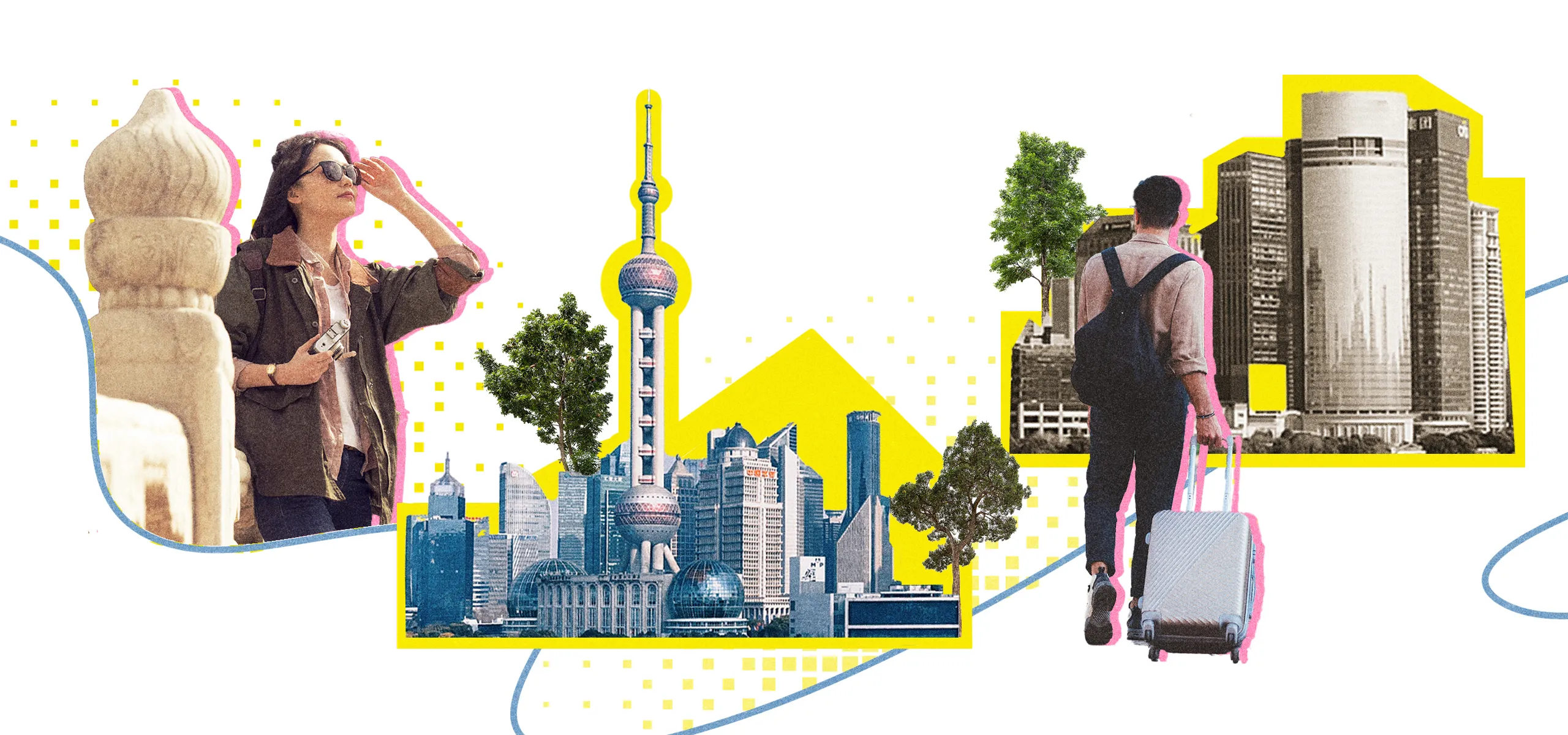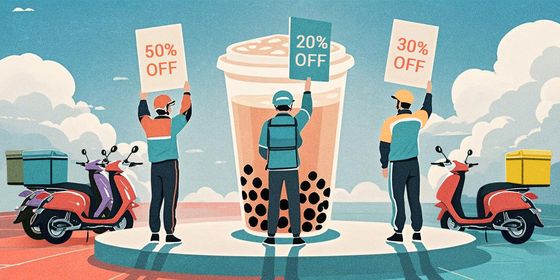Shanghai-based American influencer Paul Mike Ashton’s viral meme, “city bu city,” transforms the concept of urbanity
It’s not often that an internet meme makes it all the way to China’s Foreign Ministry. But that’s what happened on July 4, when a journalist asked spokesperson Mao Ning for her comments on a viral catchphrase created by a foreign video blogger.
The “city不city啊 (city bù city a)” and “好city啊 (hǎo city a)” memes—literally meaning “city or not city” and “good city”—were created by American Paul Mike Ashton, known as 保保熊 (Baobao Bear) online, who has lived in Shanghai for seven years. In a video posted to Douyin, China’s equivalent of TikTok, the vlogger walks the streets of Shanghai asking his sister in Chinese, “Sister, you’re visiting Shanghai. How do you feel about the city?” She responds, “Very city, super city (好city啊,super city啊),” with an exaggerated emphasis on the modal particle 啊 (a, ah).
Blending English and Chinese, these memes have become an internet sensation, with countless reposts and recreations.
In later posts, Ashton asks, with his characteristic ah, “Is the Great Wall beautiful or not? Is the Great Wall ‘city’ or not ‘city’? (长城美不美啊?长城city不city啊? Chángchéng měi bù měi a? Chángchéng city bù city a?)” He asks of tea, “Is drinking milk tea ‘city’ or not ‘city’ (喝奶茶city不city啊 Hē nǎichá city bù city a)?”
Learn more Chinese phrases to talk about traveling:
- A Language Guide to Social Media Travel Posting
- 游: Learn the Chinese Character for Journeys and Adventures
- 探: Learn the Chinese Character for Exploration and Inquiry
Ashton has turned “city” from a noun into an adjective, one which has come to mean fashionable (洋气 yángqì), urban (都市的 dūshì de), and modern (现代的 xiàndài de).
While scrolling through his videos and attempting to decipher the grammatically incorrect sentences, Chinese internet users expressed, sometimes playfully, uncertainty about the foreign vlogger’s Chinese proficiency. “Did he learn Chinese from a reputable website?” one Xiaohongshu user wondered.
The newly viral vlogger logged on to explain his interpretation of the word “city.” He found it charming the way his Chinese friends pronounced the word, and observed that many Chinese people in business environments substitute English words for Chinese ones, like saying, “我们现在的项目已经是delay的 (Wǒmen xiànzài de xiàngmù yǐjīng shì delay de, Our recent project has been delayed).” In addition, he wanted to capture the spirit of his favorite TV character, Liz Lemon (Tina Fey), who really enjoys city life. Liz stars in NBC’s popular sitcom 30 Rock, which aired from 2006 to 2013. Ashton included a clip of her performance in his video.
As more netizens incorporate “city” into their daily conversations, the term has evolved to express a sense of refreshment, excitement, and enthusiasm for urban living. Despite the ongoing trend of “escaping from Beijing, Shanghai, and Guangzhou (逃离北上广 táolí Běi Shàng Guǎng)” due to these cities’ fast pace of life and steep housing costs, it’s clear that people still glamorize the urban experience.
Ashton also mentioned “citywalk (城市漫步 chéngshì mànbù),” a buzzword that emerged last year among urban Gen Z residents, as an inspiration for his meme. Citywalking refers to a travel trend of exploring a city’s hidden gems, a leisurely way of forging a deeper connection to one’s city while escaping one’s everyday routines.
From discovering lesser-known scenic spots, architecture, and culture, to exploring the hidden corners of Beijing’s hutongs or Shanghai’s longtangs, being a “street wanderer (街溜子
gāi liūzi in the dialect of Northeastern China)” is no longer a derogatory term. It has evolved into a fashionably urban practice that young people now call “Daily Walk Studies (日常散步学 rìcháng sànbù xué).”
City cycling (城市骑行 chéngshì qíxíng) has also become increasingly popular, promoting a healthy and natural way of engaging with urban environments. City parks, once the preferred hangout for older generations, are now drawing more young people who seek the benefits of the “20-Minute Park Effect (公园二十分钟效应 gōngyuán èrshí fēnzhōng xiàoyìng),” referring to the idea that spending 20 minutes in a park each day is restorative for the mind and body.
The notion of “city” is transforming, with the city becoming an antidote against the mundane. It’s a relief to think that, despite the burdens and monotony in people’s workplaces and living environments, the city—whatever you take that to mean—can still offer delightful corners of refuge.












